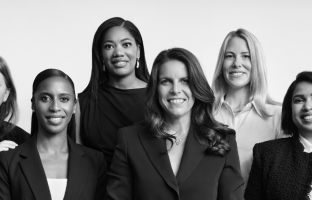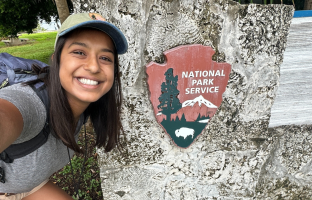I began my HBS admissions application essay with the following sentence: “I aspire to help build organizations that are advancing sustainability and addressing the issue of climate change.” For the past year and a half, I’ve been trying to figure out how to continue meeting the goal I outlined in my HBS essay while working in a business facing role. Some soul searching helped me realize that my ideal post-MBA role needed to satisfy the following criteria:
- Be sustainability and technology focused
- Challenge me to solve tough problems
- Teach me how to work in business strategy and/or ops functions
- Allow me to develop strong professional relationships
- Be a launch pad for future career growth
I found this ideal role with BCG Boston, and am excited to join them after graduation, and wanted to share some of the lessons I’ve learned along the way.
Finding My Niche
Before HBS I was an engineer at Tesla, where I worked in manufacturing and design engineering. During my time there I learned about the power of an organization to develop technology and execute business strategy to bring positive change in the world.
Coming off that experience, in my first semester I joined the Energy and Environment Club and the Sustainability Club to meet fellow classmates with similar interests, deepen my involvement in helping advance the climate change conversation at HBS, and connect with like-minded hiring organizations. As an active member of the clubs I helped plan professional panels for each of the clubs’ conferences. Both the planning process and the conference itself were instrumental in getting exposure to exciting businesses, innovative ideas, and brilliant people who became part of my network.
During my second semester I had the opportunity to help develop a market research report for a battery startup, and this experience along with the conversations I had with HBS Career & Professional Development (CPD), convinced me to pursue an internship at a battery startup.
Exploring the Startup Space
Finding a startup role, particularly in a relatively niche field like batteries, required a lot of networking with HBS alumni, in addition to the individuals that I met through the club conferences. After months of conversations and interviews, in April of 2021, I accepted a role at battery startup called Natron Energy.
My summer at Natron Energy taught me a lot about the assumptions I had made about myself and my career journey. I thought that I had found the perfect fit because the role checked a lot of boxes – growing battery startup, opportunity to work directly for the Chief Business Officer, and remote. However, after a few weeks, I realized that the ambiguity that often comes with startups did not fit my learning style; I needed more structure and guidance. In addition, I realized that being remote comes with its own challenges and not having any peers in the same role proved to be difficult. However, the role allowed me to learn a lot about the battery space, meet great people, and practically apply the knowledge I’d gained in the HBS classroom.
Making an Industry Pivot Post-Internship
The startup experience put me at a career crossroads by August 2021. Going in, I had convinced myself that the startup path would fulfill all five of my criteria but, ultimately, it fell short on criteria #3 and #4. After many conversations with fellow classmates and HBS CPD, I decided to recruit for consulting – a career option that I had completely brushed off prior. I realized that working at a large firm would satisfy criteria #2-5, but I still wanted to ensure that it would meet criterion #1, so I focused on that in my conversations with the firms during the recruiting process.
This decision was a challenging pivot because of the full-time consulting recruiting season timing, but I was fortunate to sign at BCG Boston. What I admire most about BCG is how well it meets criterion #1 – a focus on sustainability and technology – with just one example being the many ways in which BCG is focusing on corporate transitions to net-zero. Of course, I will likely be doing many non-sustainability related projects as well, but working at a firm with several of my HBS classmates and with a structured learning and development process will make BCG a great first job post-MBA.
Key Learnings & Advice
Having gone through the recruiting process a couple of times, I wanted to provide a few suggestions based on my experience for recruiters to better reach students.
- Use clubs as channels. Clubs are a fantastic way to reach students. Nearly every club has newsletters that it sends to students and the newsletters often contain open job positions. Club leadership contact information may be available online or through HBS’s CPD team.
- Ask about areas of interest. While recruiters may assume students are interested in a particular role based on their experience, asking students what kind of role they are interested in is always a great place to start. This is especially relevant for career switchers like myself – even though I may be well suited for a particular role or position given my prior work experience, I may be interested in leveraging knowledge gained at HBS to explore making an impact in a different role or function.
- Eliminate friction. I always appreciate recruiters, hiring managers, and companies who remove barriers for students during the application process. If organizations are able to forego the long forms on company websites, students appreciate when job postings are available on 12twenty as it allows students to apply through a platform they are familiar with and frequently use.
- Note to startup recruiters. The biggest challenge I experienced in my startup recruiting process was finding startups. If you’re a start-up organization looking to hire, engage in conversations with the HBS CPD team and use their channels (career panels, 12Twenty postings, etc.) to connect with the significant number of students looking to work at a startup.





.png&w=80&h=80)

